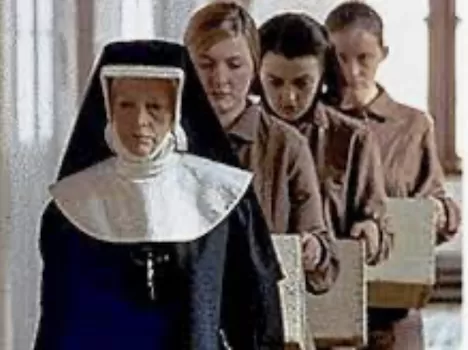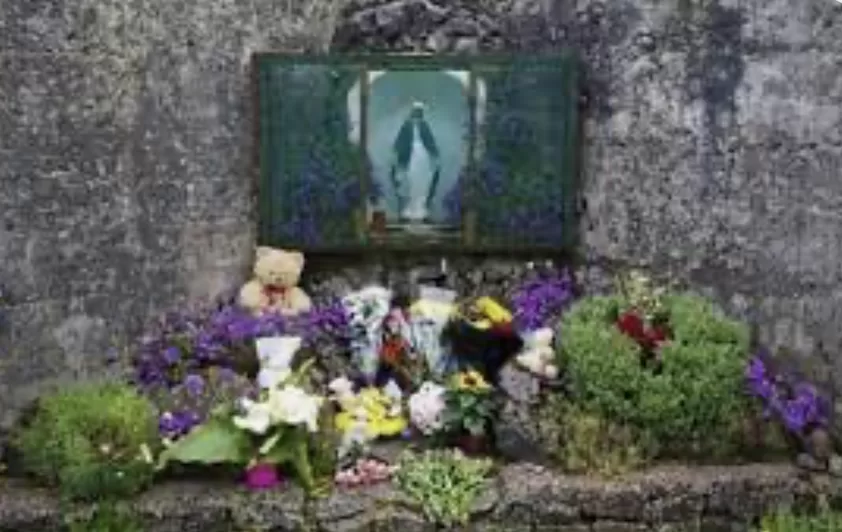For decades, thousands of unmarried and vulnerable women in England were sent to mother and baby homes — institutions run by religious organizations that promised care, but instead delivered punishment, shame, and irreversible loss. Between the 1940s and 1970s, an estimated 250,000 women were hidden away in over 150 of these institutions across England. Their crime? Becoming pregnant outside of marriage.

While the world was shaken by revelations from Ireland’s mother and baby homes — especially the discovery of a mass grave at Tuam — England’s equivalent scandal remained largely in the shadows. Only now, through the voices of survivors, independent journalism, and public pressure, are the stories of forced adoption, emotional abuse, and unmarked infant graves coming to light.
Many of the women who entered these homes were teenagers, isolated from family and community, and coerced into giving up their babies. Some were never told where their children went. Others, like Diana Defries, watched helplessly as their newborns were taken. “I yelled to bring her back,” she recalled, “but the nurse just walked past me.”
It’s believed that around 185,000 adoptions took place during this era — framed as benevolent acts to provide children with “better” lives. But the lasting trauma is undeniable. Mothers speak of lifelong grief, while adopted children struggle with questions of identity, secrecy, and abandonment. “It’s like a piece of me has been missing,” said Gaynor Weatherly, who only discovered her origins decades later.
Testimonies reveal environments of cruelty. Girls were denied pain relief, shamed by staff, and subjected to forced labor. Lyn Rodden, now 88, called her home a “slave camp,” where heavily pregnant teens scrubbed flagstones and did laundry for the local community.

Investigations have also uncovered unmarked graves of infants who died in these homes — their deaths often hidden from the mothers.
In 2021, a UK parliamentary report formally recognized the shocking abuses that took place in adoption homes across the country, classifying these practices as clear violations of human rights. The report called for a formal apology from the government and urged the establishment of comprehensive support services to address the lifelong impact on survivors. This marked a crucial step toward acknowledging the suffering endured by countless individuals who were forcibly separated from their families, subjected to neglect, or placed in harmful environments under the guise of care.
Building on this recognition, 2025 saw the unveiling of memorial gardens in Kendal and Cornwall—two poignant sites that serve as symbolic spaces for reflection, mourning, and public acknowledgment of this dark chapter in British history. These gardens offer survivors, their families, and the wider community a place to remember those affected and to honor the resilience of those who endured profound loss and trauma.
However, for many survivors, memorials alone are not enough. While remembrance is important, true justice goes far beyond symbolism. Survivors continue to demand accountability from the institutions and authorities responsible for the adoption practices, insisting that those who enabled or ignored these abuses must be held responsible. Furthermore, full access to adoption records remains a critical issue. Many adoptees still face barriers when seeking information about their biological families, obstructing their ability to piece together their identities and histories.
Equally important is the call for ongoing, accessible support services tailored to the unique needs of survivors. This includes psychological counseling, legal assistance, and community resources to help individuals navigate the complex aftermath of their experiences. Without these concrete actions, survivors risk being left behind, their voices unheard beyond the ceremonial gestures of memorials.
In essence, the journey toward justice is ongoing. It requires sustained commitment from government bodies, social services, and society at large to ensure that survivors are not only remembered but also empowered and supported to rebuild their lives with dignity and respect. Only then can the legacy of these adoption home abuses be confronted honestly and healing truly begin.
This is not just history. It’s a living legacy of silence, and the reckoning has only just begun.
Read the full story here.

